第30章 II(14)
Dr. Baillie, one of the physicians in the great Hotel Dieu of Paris, invited two Homoeopathic practitioners to experiment in his wards.
One of these was Curie, now of London, whose works are on the counters of some of our bookstores, and probably in the hands of some of my audience. This gentleman, whom Dr. Baillie declares to be an enlightened man, and perfectly sincere in his convictions, brought his own medicines from the pharmacy which furnished Hahnemann himself, and employed them for four or five months upon patients in his ward, and with results equally unsatisfactory, as appears from Dr. Baillie's statement at a meeting of the Academy of Medicine. And a similar experiment was permitted by the Clinical Professor of the Hotel Dieu of Lyons, with the same complete failure.
But these are old and prejudiced practitioners. Very well, then take the statement of Dr. Fleury, a most intelligent young physician, who treated homoeopathically more than fifty patients, suffering from diseases which it was not dangerous to treat in this way, taking every kind of precaution as to regimen, removal of disturbing influences, and the state of the atmosphere, insisted upon by the most vigorous partisans of the doctrine, and found not the slightest effect produced by the medicines. And more than this, read nine of these cases, which he has published, as I have just done, and observe the absolute nullity of aconite, belladonna, and bryonia, against the symptoms over which they are pretended to exert such palpable, such obvious, such astonishing influences. In the view of these statements, it is impossible not to realize the entire futility of attempting to silence this asserted science by the flattest and most peremptory results of experiment. Were all the hospital physicians of Europe and America to devote themselves, for the requisite period, to this sole pursuit, and were their results to be unanimous as to the total worthlessness of the whole system in practice, this slippery delusion would slide through their fingers without the slightest discomposure, when, as they supposed, they had crushed every joint in its tortuous and trailing body.
3. I have said, that to show the truth of the Homoeopathic doctrine, as announced by Hahnemann, it would be necessary to show, in the third place, that remedies never cure diseases when they are not capable of producing similar symptoms! The burden of this somewhat comprehensive demonstration lying entirely upon the advocates of this doctrine, it may be left to their mature reflections.
It entered into my original plan to treat of the doctrine relating to Psora, or itch,--an almost insane conception, which I am glad to get rid of, for this is a subject one does not care to handle without gloves. I am saved this trouble, however, by finding that many of the disciples of Hahnemann, those disciples the very gospel of whose faith stands upon his word, make very light of his authority on this point, although he himself says, "It has cost me twelve years of study and research to trace out the source of this incredible number of chronic affections, to discover this great truth, which remained concealed from all my predecessors and contemporaries, to establish the basis of its demonstration, and find out, at the same time, the curative medicines that were fit to combat this hydra in all its different forms."
But, in the face of all this, the following remarks are made by Wolff, of Dresden, whose essays, according to the editor of the "Homoeopathic Examiner," "represent the opinions of a large majority of Homoeopathists in Europe."
"It cannot be unknown to any one at all familiar with Homoeopathic literature, that Hahnemann's idea of tracing the large majority of chronic diseases to actual itch has met with the greatest opposition from Homoeopathic physicians themselves." And again, "If the Psoric theory has led to no proper schism, the reason is to be found in the fact that it is almost without any influence in practice."
We are told by Jahr, that Dr. Griesselich, "Surgeon to the Grand Duke of Baden," and a "distinguished" Homoeopathist, actually asked Hahnemann for the proof that chronic diseases, such as dropsy, for instance, never arise from any other cause than itch; and that, according to common report, the venerable sage was highly incensed (fort courrouce) with Dr. Hartmann, of Leipsic, another "distinguished" Homoeopathist, for maintaining that they certainly did arise from other causes.
And Dr. Fielitz, in the "Homoeopathic Gazette" of Leipsic, after saying, in a good-natured way, that Psora is the Devil in medicine, and that physicians are divided on this point into diabolists and exorcists, declares that, according to a remark of Hahnemann, the whole civilized world is affected with Psora. I must therefore disappoint any advocate of Hahnemann who may honor me with his presence, by not attacking a doctrine on which some of the disciples of his creed would be very happy to have its adversaries waste their time and strength. I will not meddle with this excrescence, which, though often used in time of peace, would be dropped, like the limb of a shell-fish, the moment it was assailed; time is too precious, and the harvest of living extravagances nods too heavily to my sickle, that I should blunt it upon straw and stubble.